Struggling to decide between using a compost bin or garbage disposal for your food waste? Well, you’re not alone. Many people are grappling with this decision in an effort to make more eco-friendly choices at home.
This article will help to clear the confusion, providing insights on the environmental impacts of each method and providing practical tips for effective composting. Getting confused of choosing between composting vs garbage disposal. Let’s dive into making our homes greener and healthier!
Key Takeaways
- Garbage disposal can clog landfills, stress sewage treatment plants, and potentially pollute waterways.
- Composting reduces waste in landfills, produces nutrient-rich soil, and decreases greenhouse gas emissions.
- Factors to consider when choosing between composting and garbage disposal include convenience, available resources, space constraints, and time availability.
Environmental Impact of Garbage Disposal

Garbage disposal has significant environmental impacts, such as clogging landfills, stressing sewage treatment plants, and potentially polluting waterways.
Clogging landfills
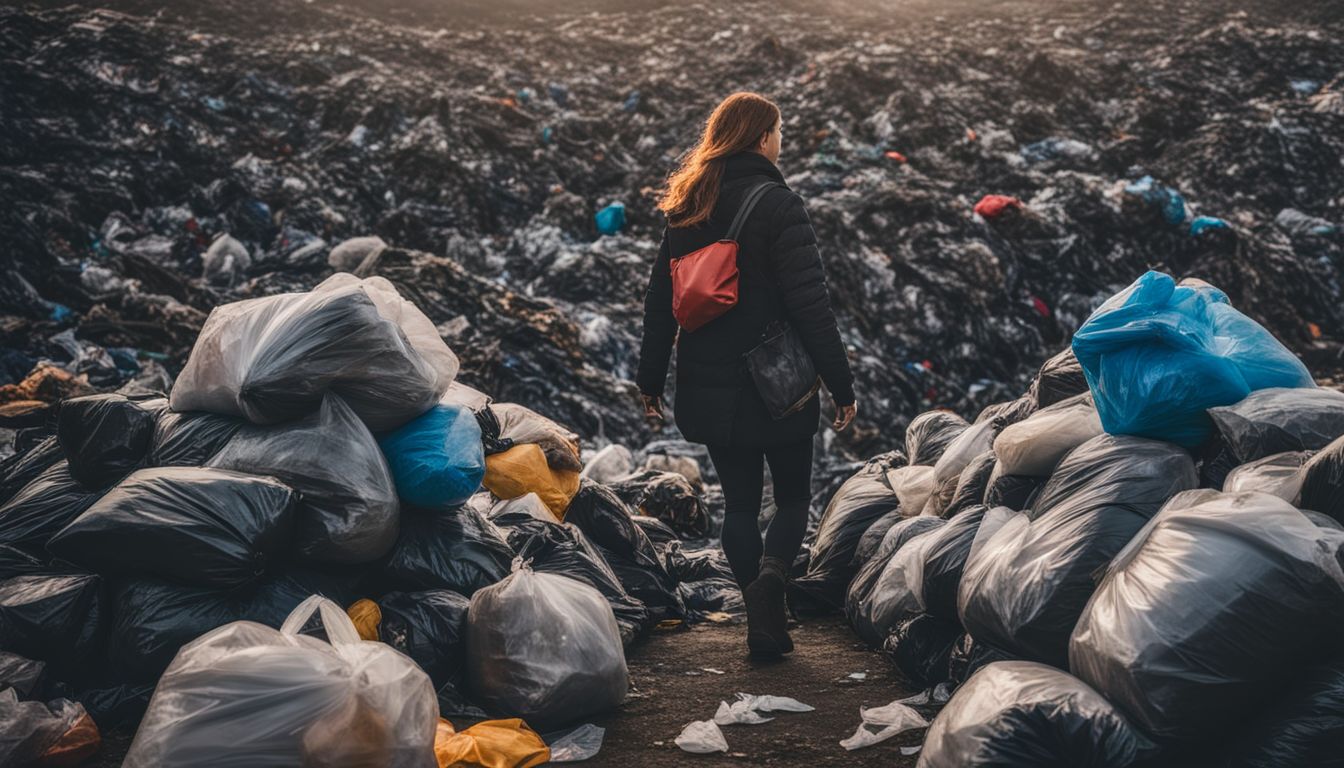 Landfills get filled fast with waste. This happens when we put too much stuff in the trash. A lot of this is food waste from our kitchens. It piles up day by day and takes a long time to break down.
Landfills get filled fast with waste. This happens when we put too much stuff in the trash. A lot of this is food waste from our kitchens. It piles up day by day and takes a long time to break down.
Some bits of food can take many years! This is bad news for our planet. Landfills also give off a gas called methane, which is not good for our air.
Stressing sewage treatment plants
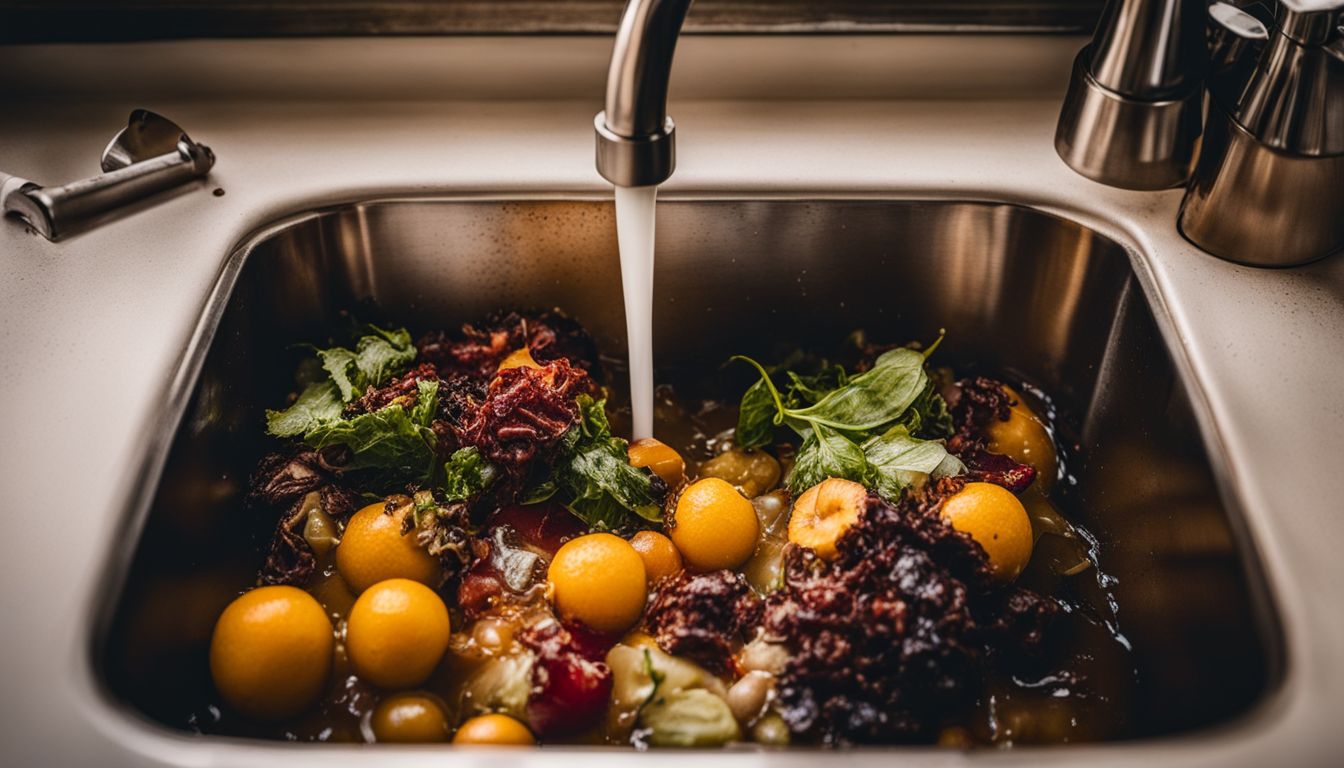
Throwing food waste down the garbage disposal can put a strain on sewage treatment plants. When too much food waste goes into the sewage system, it can overwhelm the treatment process and lead to problems.
The excess organic matter requires extra energy and resources to break down, which can be costly and time-consuming for the treatment plants. This increased load on the sewage system also increases the risk of clogs and blockages in pipes, causing disruptions in wastewater management.
By composting food waste instead of using the garbage disposal, we can help alleviate this stress on sewage treatment plants and ensure more efficient and sustainable waste management practices.
Potential water pollution
Garbage disposal can potentially pollute waterways. When food waste is ground up and sent down the drain, it can end up in rivers, lakes, or oceans, contaminating the water. This pollution can harm aquatic life and disrupt ecosystems.
Composting, on the other hand, does not contribute to water pollution as it involves recycling organic waste into nutrient-rich soil instead of allowing it to enter water sources. By choosing composting over garbage disposal, we can help protect our planet’s precious water resources and promote sustainable practices for a greener future.
Environmental Benefits of Composting
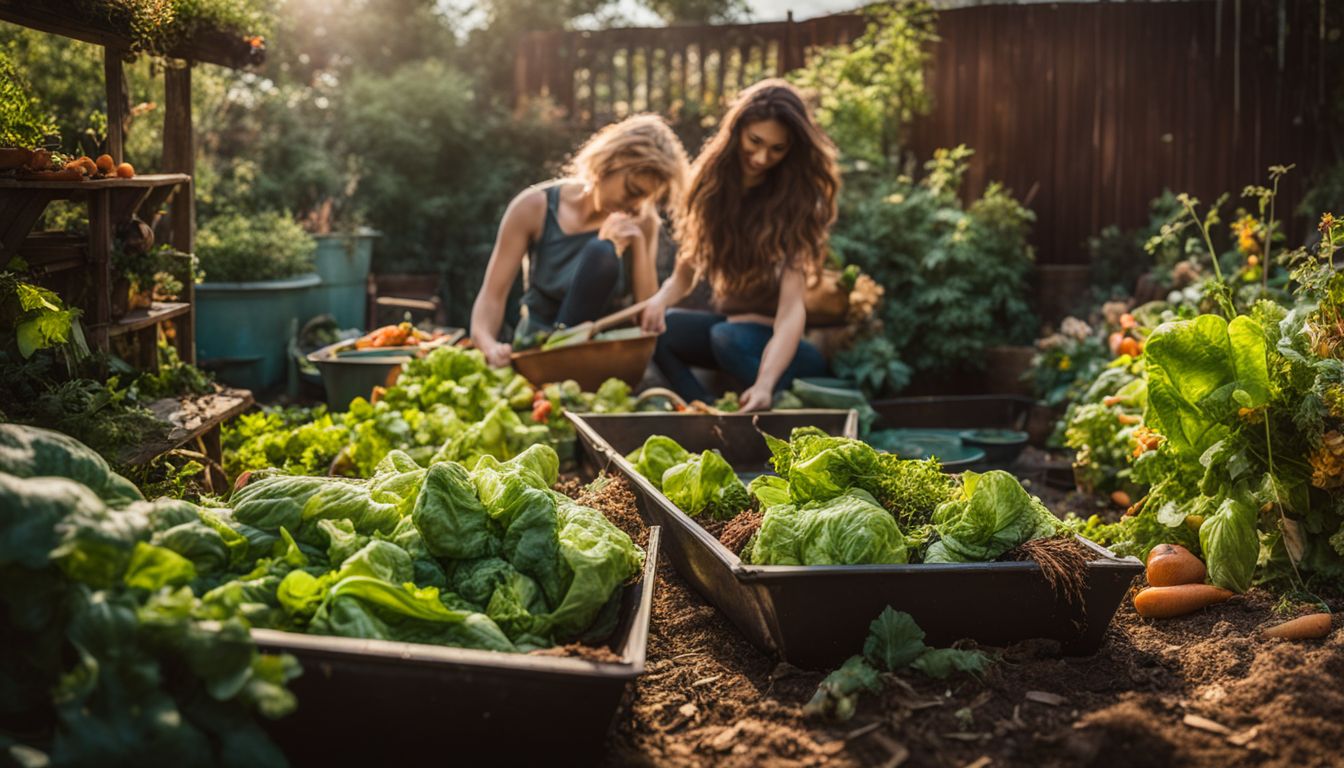
Composting reduces waste in landfills, produces nutrient-rich soil, and decreases greenhouse gas emissions.
Reduces waste in landfills
Composting is an effective way to reduce waste in landfills. When organic materials such as food scraps are composted instead of thrown away, they break down naturally and turn into nutrient-rich soil.
This means less garbage going into landfills, which helps to conserve space and reduce the harmful environmental impact of landfill waste. By choosing to compost, we can make a positive difference for our planet by reducing the amount of waste that ends up in landfills and promoting sustainable practices.
Produces nutrient-rich soil
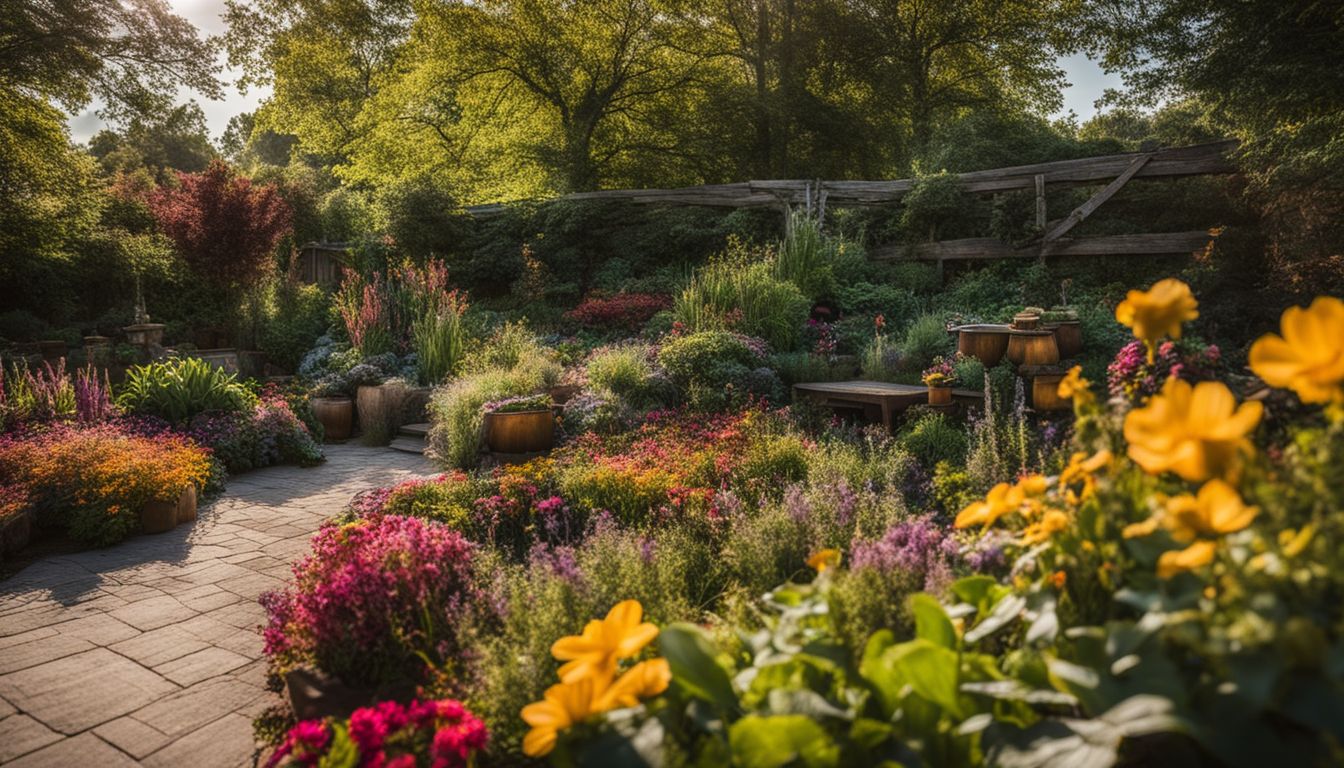
Composting is a great way to produce nutrient-rich soil for your plants and gardens. When you compost food waste, it breaks down into organic matter that is packed with essential nutrients like nitrogen, phosphorus, and potassium.
These nutrients are then absorbed by the soil and used by plants to grow strong and healthy. Additionally, compost helps improve the structure of the soil, allowing for better water retention and drainage.
This means that your plants will have access to more moisture during dry periods and won’t get waterlogged during heavy rains. Composting not only reduces waste but also provides a valuable resource that can enhance your gardening efforts while promoting sustainable practices.
Decreases greenhouse gas emissions
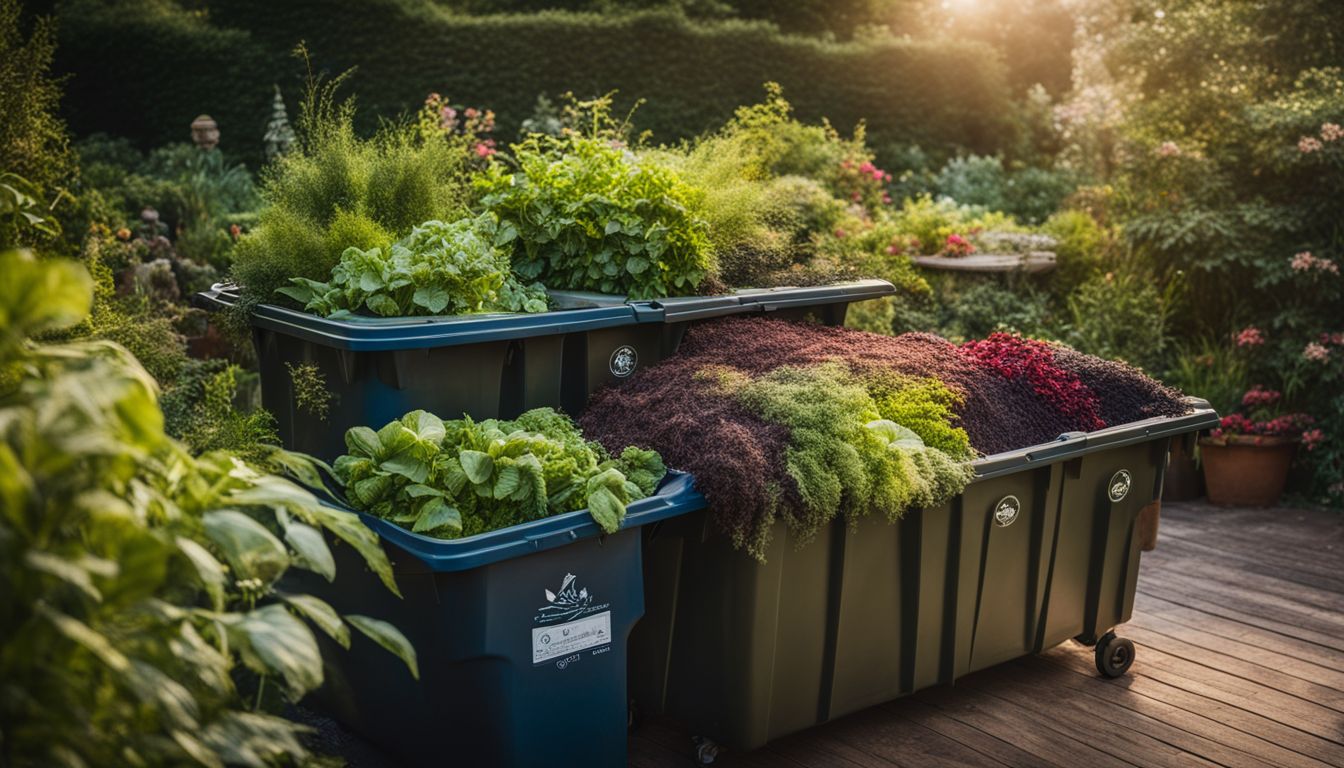
Composting is an eco-friendly way to decrease greenhouse gas emissions. When food waste goes to a landfill, it breaks down and releases methane, a potent greenhouse gas that contributes to climate change.
However, when food waste is composted instead, it decomposes in the presence of oxygen and produces carbon dioxide, which has a lower impact on the environment. By choosing composting over garbage disposal, we can help reduce our carbon footprint and work towards a more sustainable future.
Factors to Consider in Choosing Between Composting and Garbage Disposal
Consider convenience, available resources, and space constraints before deciding between composting and garbage disposal. Read on to explore the best practices for each method.
Convenience and ease of use

Composting and garbage disposal differ in terms of convenience and ease of use. Using a garbage disposal is simple – you just have to toss your food scraps down the drain. It requires no extra effort or maintenance.
On the other hand, composting may require more time and effort. You need to set up a compost bin, maintain it properly, and regularly turn the pile to ensure proper decomposition. However, many people find composting to be rewarding because it helps reduce waste and create nutrient-rich soil for gardening.
So while using a garbage disposal may be more convenient in the short term, composting offers long-term benefits for both the environment and your gardens.
Available resources and infrastructure
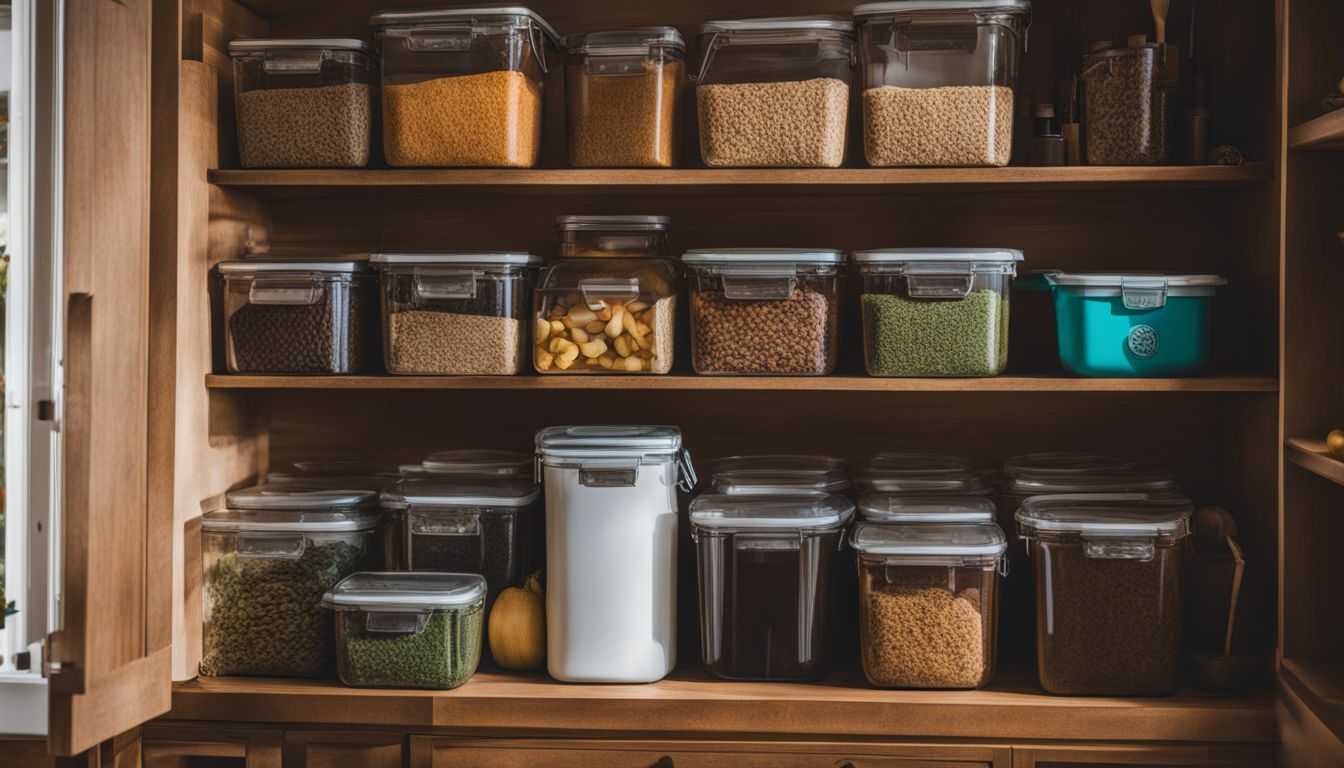
When deciding between composting and garbage disposal, it is important to consider the available resources and infrastructure. Composting requires certain resources like compost bins or piles, as well as space to accommodate them.
It also requires access to organic waste such as food scraps or yard trimmings. Additionally, the infrastructure for composting, such as municipal composting facilities or community gardens, needs to be in place for easy disposal of composted materials.
On the other hand, garbage disposal typically relies on existing waste management systems and infrastructure like landfills or sewage treatment plants. Most households already have garbage disposals installed in their kitchens, making it a convenient option for waste disposal.
Space and time constraints
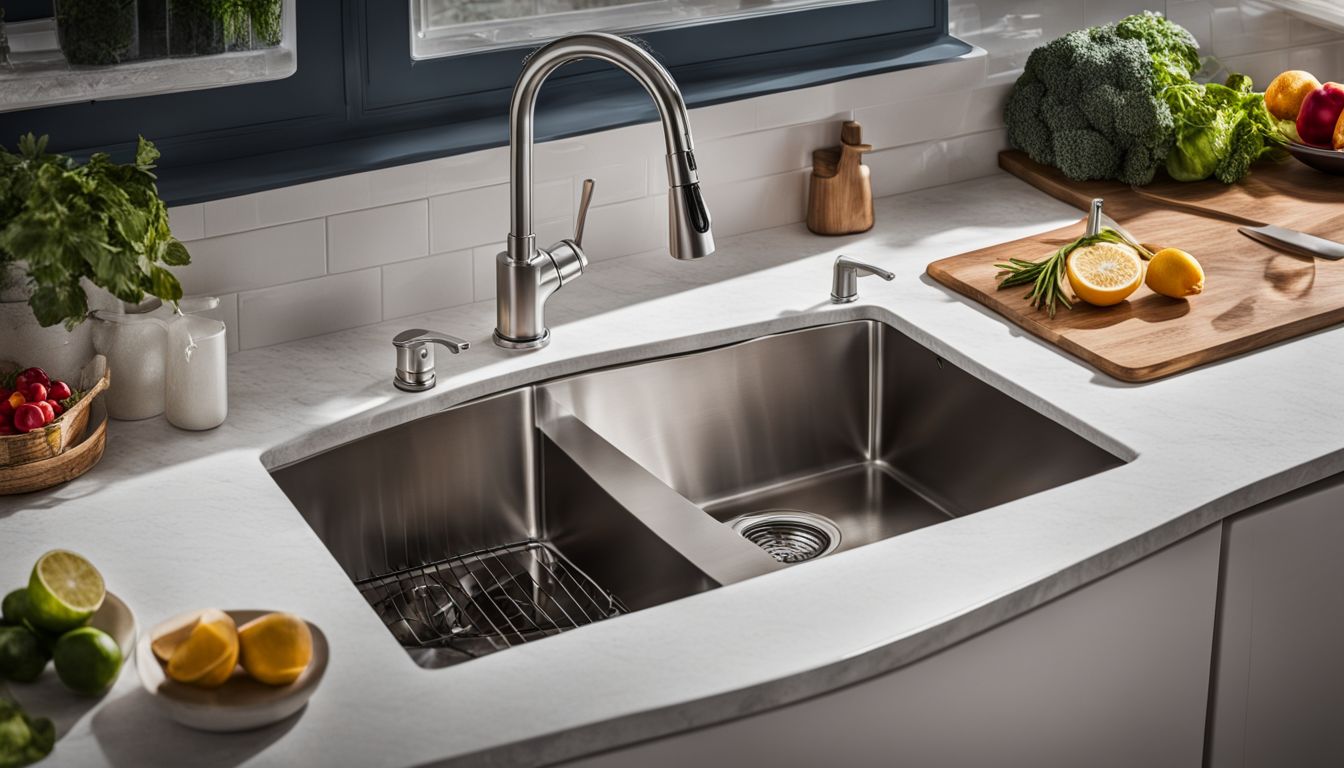
Considering space and time constraints is an important factor when choosing between composting and garbage disposal. Composting requires a certain amount of space for setting up a compost pile or bin, which may not be feasible for those living in small apartments or with limited outdoor areas.
Additionally, composting takes time as the organic waste needs to decompose properly before it can be used as nutrient-rich soil. On the other hand, garbage disposal offers convenience and requires less physical space since it involves grinding food waste into tiny particles that can easily flow through pipes.
So, if you have limited space or are short on time, using a garbage disposal might be a more practical option for you.
Best Practices for Composting
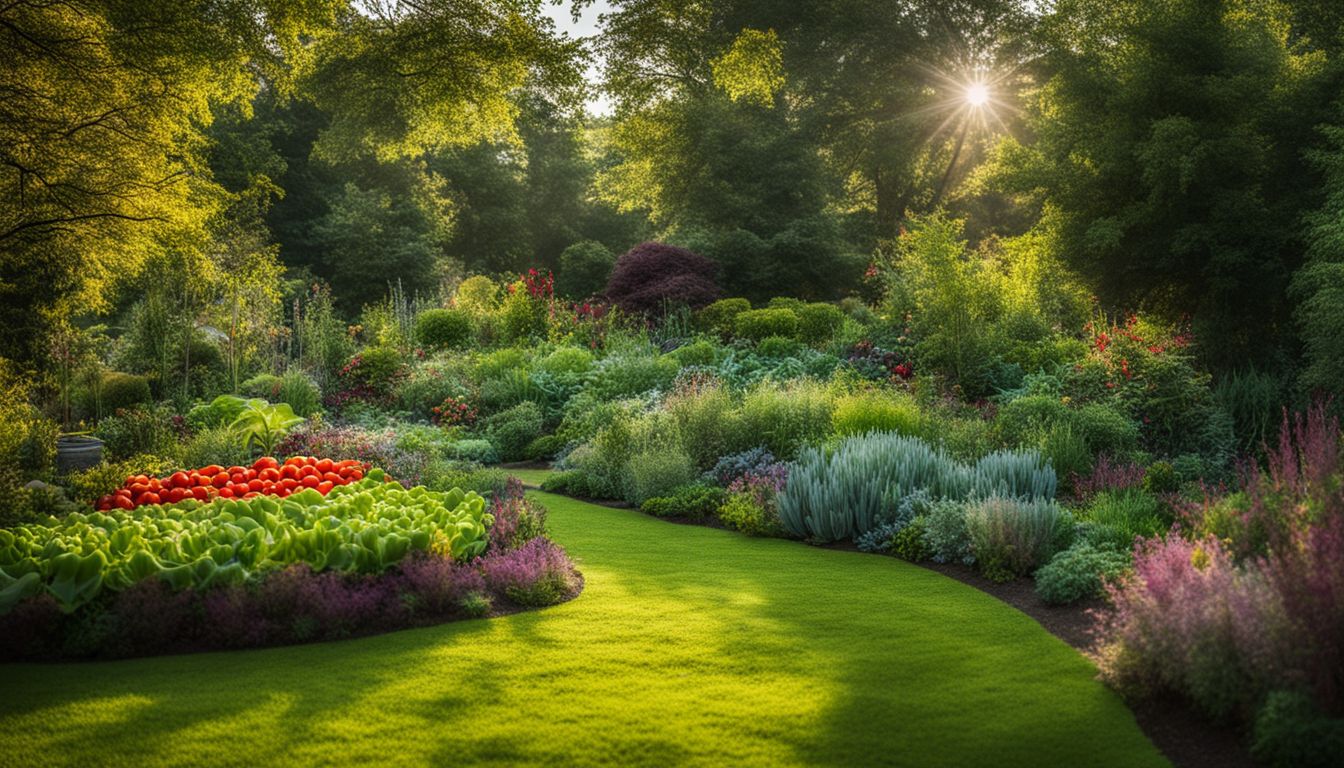
There are different types of composting methods, such as traditional backyard composting and vermiculture, that can be used to efficiently break down organic waste.
Types of composting methods
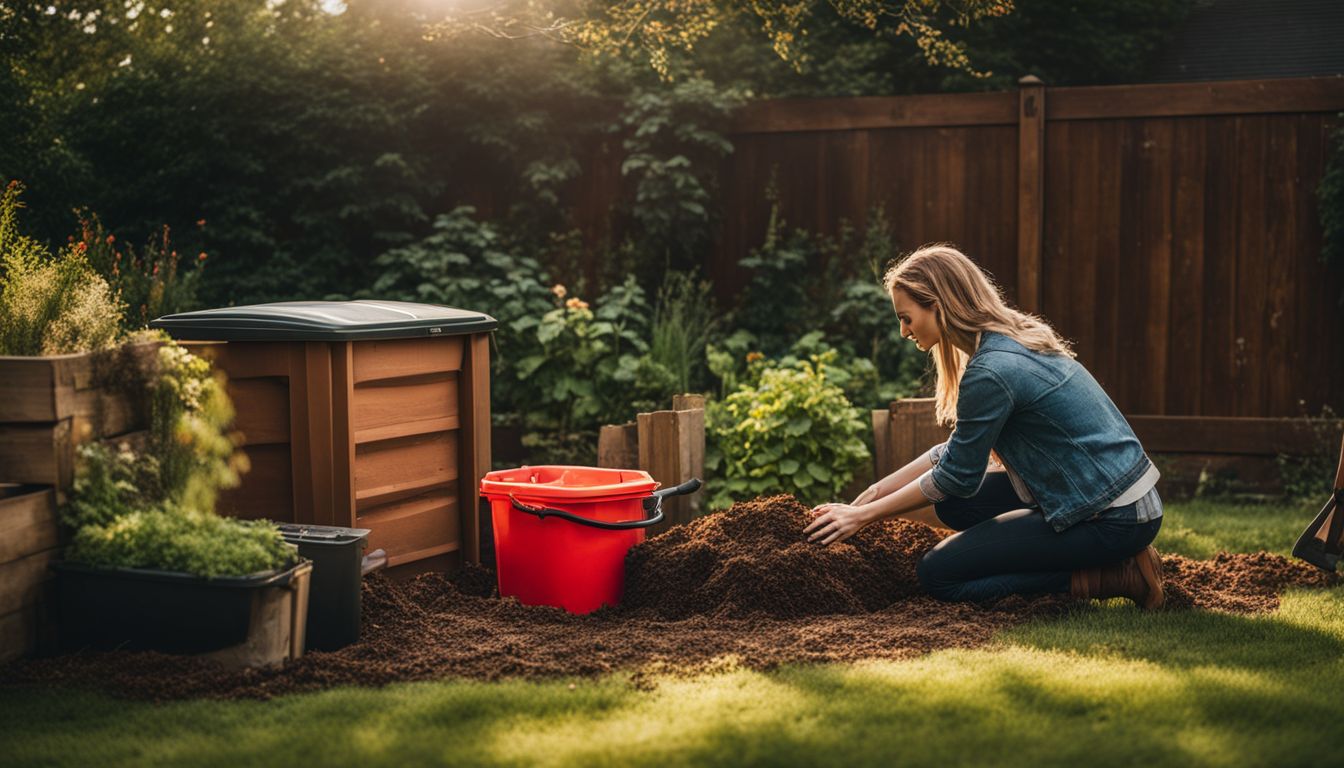
There are different ways to compost your food waste. Here are some popular methods:
- Backyard Composting: This method involves creating a compost pile in your own backyard. You can use a bin or simply create a heap of organic materials like fruit and vegetable scraps, yard waste, and leaves. Make sure to turn the pile regularly to facilitate decomposition.
- Vermicomposting: This method uses worms to break down food waste into nutrient-rich compost. Redworms, also known as red wigglers, are commonly used for this purpose. You can set up a worm bin indoors or outdoors and feed them with kitchen scraps mixed with bedding material like shredded newspaper or cardboard.
- Bokashi Composting: Bokashi is a Japanese term meaning “fermented organic matter.” In this method, you add food waste to an airtight container along with bokashi bran, which is made of beneficial microbes. The waste undergoes fermentation instead of decomposition, producing a nutrient-rich liquid fertilizer.
- Trench Composting: This method involves burying food waste directly in the ground instead of using a compost bin or pile. Dig a trench at least 12 inches deep in your garden and bury the food scraps. Over time, they will decompose and enrich the soil.
What can be composted

You can compost the following items:
- Fruit and vegetable scraps
- Coffee grounds and filters
- Tea bags (remove staples)
- Eggshells
- Nut shells
- Yard trimmings (grass clippings, leaves)
- Yard waste (branches, twigs)
- Shredded paper and cardboard
- Fireplace ashes (cooled)
- Sawdust (from untreated wood)
- Dryer lint
- Hair and fur
- Houseplants
Maintaining the compost pile
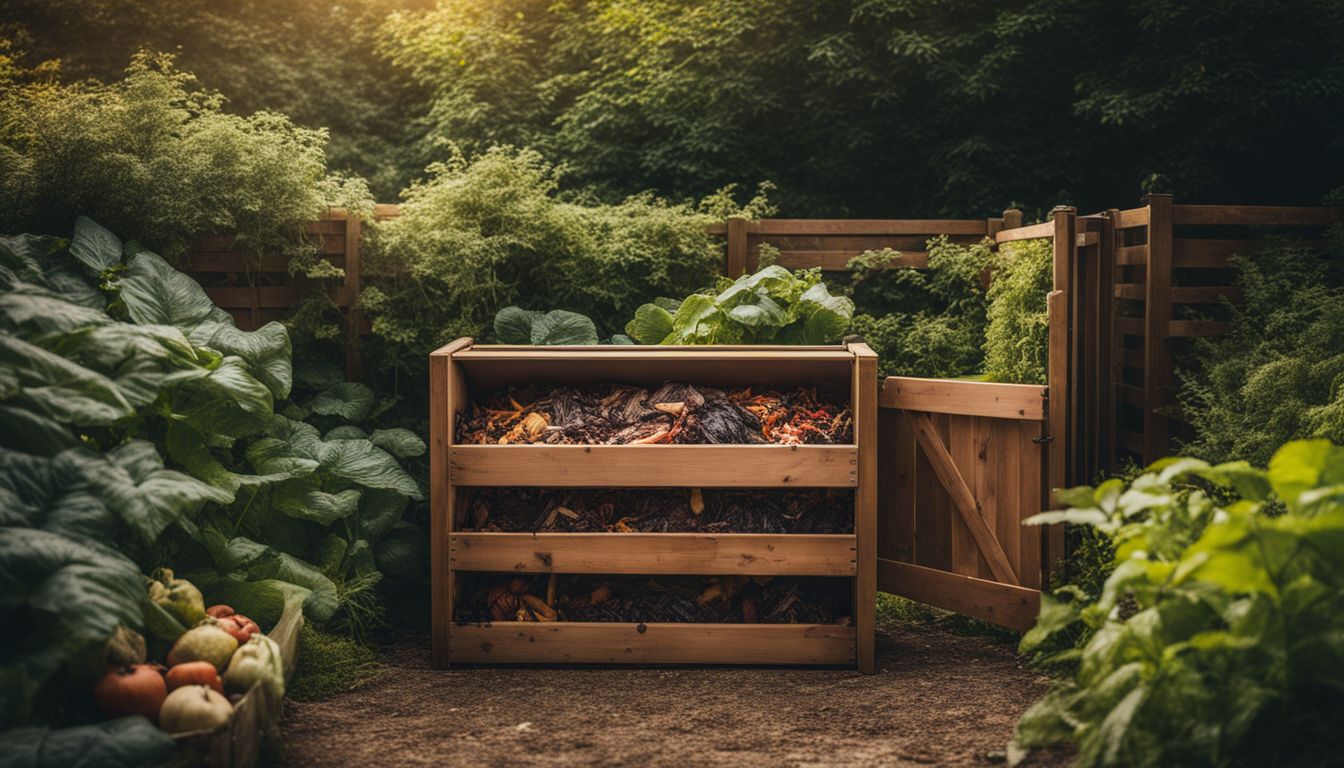
To maintain the compost pile, follow these steps:
- Turn the compost regularly to promote air circulation.
- Keep the compost moist by watering it if necessary.
- Avoid adding large amounts of one type of material at once; instead, add a variety of organic waste.
- Check the temperature of the compost regularly to ensure it stays within the ideal range for decomposition.
- Avoid adding meat, dairy, or oily foods to prevent attracting pests.
- Mix in carbon-rich materials like leaves or shredded paper to balance the nitrogen-rich food waste.
- Use a pitchfork or shovel to mix and aerate the compost pile every few weeks.
- Monitor for any signs of foul odor or excessive moisture, which may indicate that adjustments need to be made.
- Add additional organic matter as needed to keep the compost pile active and decomposing efficiently.
- Be patient and allow time for the organic waste to break down into nutrient – rich soil.
- Composting Vs Garbage Disposal: Which is Better for Your Garden and The Environment?
- Maintaining Your Compost Pile
Conclusion: Composting Vs Garbage Disposal
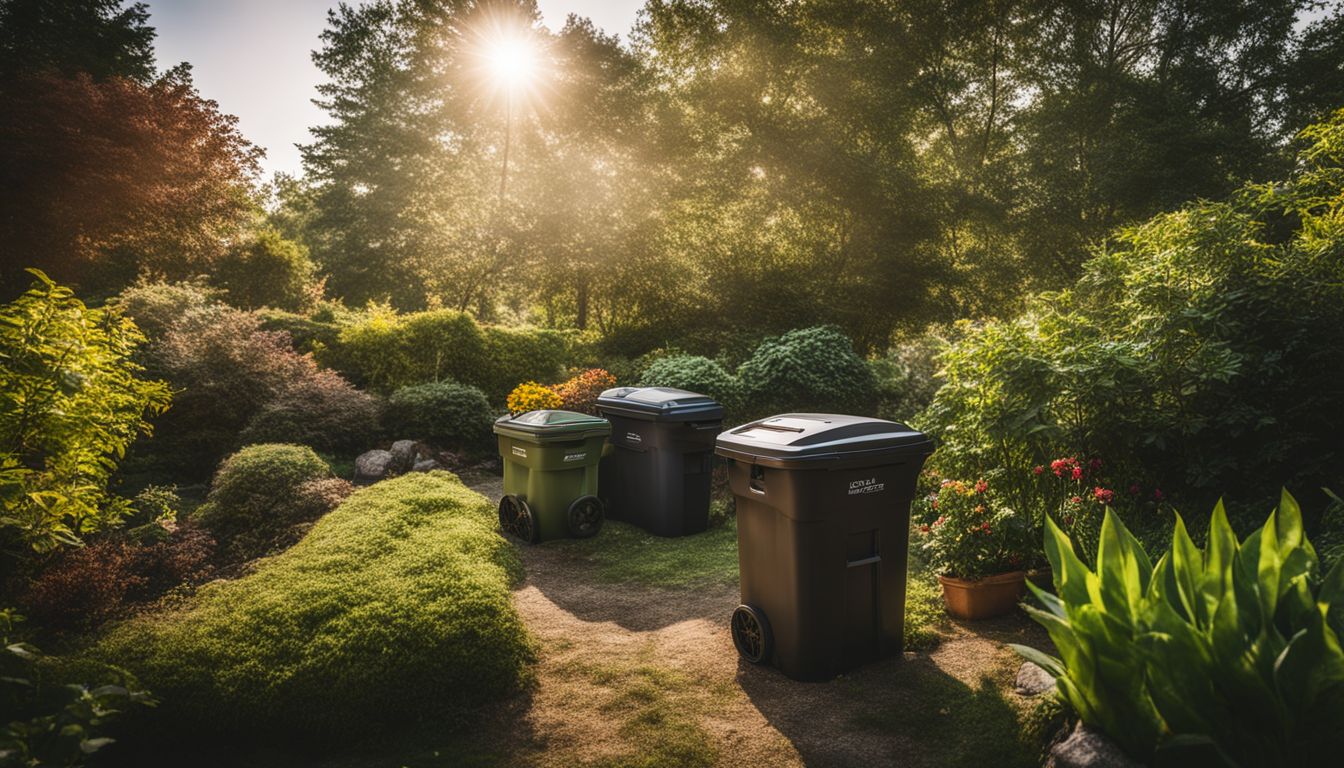
Composting is a sustainable and eco-friendly alternative to using a garbage disposal. It reduces waste in landfills, produces nutrient-rich soil, and decreases greenhouse gas emissions.
While convenience and available resources should be considered, composting is a great way to reduce our environmental impact and promote sustainable practices. So let’s choose composting over garbage disposal for a healthier planet!
FAQs
1. What is the main difference between composting and garbage disposal?
The main difference between composting and garbage disposal is how they handle waste. Composting turns food waste into useful soil, while garbage disposal sends it down the drain.
2. Is composting a better alternative than using a garbage disposal?
Composting could be seen as a better alternative to a garbage disposal because it reduces waste production and promotes eco-friendly living.
3. How can composting help us lead an ecofriendly lifestyle?
Composting helps in leading an ecofriendly lifestyle by turning our food scraps into rich soil for plants instead of adding to landfill waste.
4. Can I use both composting and garbage disposal together for my kitchen wastes?
Yes, you can use both methods together. Waste that cannot be composted like meat or dairy products can go through the garbage disposal.

As a dedicated mother and passionate software developer, she weaves her diverse experiences into captivating stories that inspire and engage readers. Emma's love for sustainable living and environmental consciousness permeates both her personal and professional life. When she's not immersed in the world of coding and software development, Emma can be found nurturing her family and tending to her thriving organic garden. Her commitment to sustainable practices extends to every aspect of her life, from repurposing household items to embracing eco-friendly technologies.










